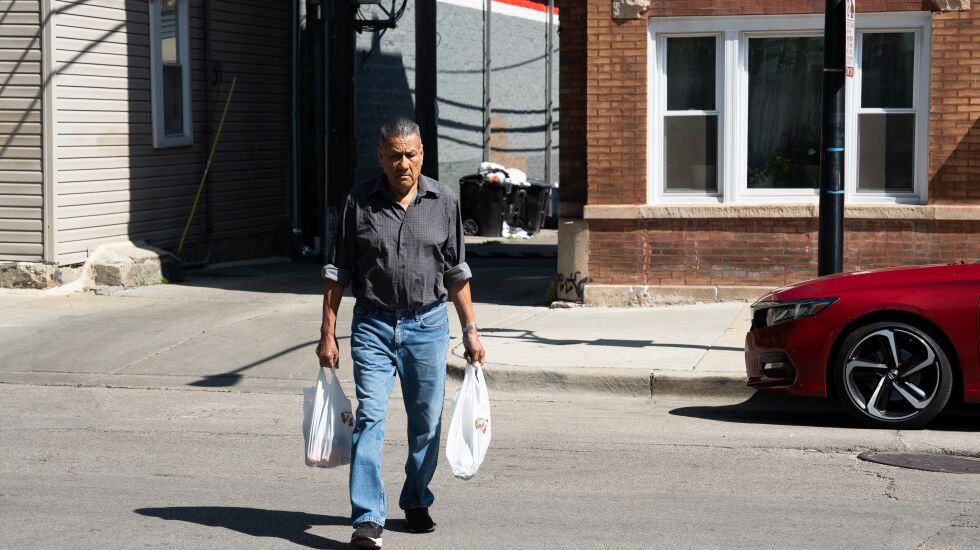
There were 5,000 Chicago residents selected to receive guaranteed income for a year, but tracking down even one of them was as hard as finding a needle in a haystack.
Our reporting on guaranteed income started in April 2022, when the city opened applications for the Chicago Resilient Communities pilot program. I stopped by community events where applicants were getting help submitting online applications.
Our goal was to track a few residents in the new program to see how getting $500 a month for a year would impact households struggling to make ends meet.
What was happening in Chicago was part of a national movement testing whether guaranteed incomes can help end poverty. In the city’s pilot, a participant’s household income had to be at or below 250% of the federal poverty line.
This pilot stood out from other government programs because the cash assistance was unrestricted, and those taking part were given the autonomy to decide how to best use the money.
During a meeting Nov. 13 of the City Council’s Committee on Economic, Capital and Technology Development, Jonathan Ernst, from the city’s Department of Family and Support Services, told alderpersons that the pilot also tested how the department delivered benefits to residents.
“We’re looking at a different way of providing support, very different than most of our federal and state grants that allow us to provide support,” Ernst said.
By the summer of 2022, 5,000 people had been chosen in a lottery, and many were starting to receive their first $500 monthly benefit.
For privacy reasons, the city was not willing to release the names of those selected.
I started calling people I met at the community events, but none of those ended up being selected.
I reached out to various community groups with no luck. Then in September, I got an email from a community organizer who knew of someone who had been accepted into the program and was willing to be interviewed.
That email connected me to Felix, a Pilsen resident who had recently become the full-time caregiver for his wife, Juana, as she recovered from a stroke. The couple lived in a two-flat, with their son and his family living below them. The family told me they shared meals together, and they helped take care of Juana until she required more attention.

I visited Felix about four times over the course of his time in the program to check in on how the family was doing. We would talk at his kitchen table that was typically adorned with fruit — sometimes papaya or bananas — that he told me he purchased with funds from the Resilient Communities pilot.
As we continued to look for participants, I learned that WBEZ reporter Esther Yoon-Ji Kang was also searching for people to track in the program. We decided to team up and expanded the scope of participants by including people who were receiving a guaranteed income from other programs in the Chicago area, including ones targeting Cook County residents and people who were formerly incarcerated.

The collaboration with WBEZ meant that we were able to produce print and radio stories chronicling how a guaranteed income was changing Chicago households. We connected with other participants through Economic Security for Illinois, now part of the Economic Security Project.
I met Jailyn Brown, who was selected for the Cook County Promise Guaranteed Income pilot, at an orientation held in the Loop. She was among the 3,250 county participants who are receiving $500 a month for two years through that program.
Like others, Brown had goals for what she wanted to do with the extra income. She thought about creating a savings cushion, and she wanted to start a business with friends.
“It’s helped with things like dental bills,” she told me in April. “It’s really just been helping me get groceries, for the most part, and personal care.”

As we spent months checking in with the participants at their homes, in parks and at coffee shops, we saw how the money kept people from falling further into debt. One participant said the money came in handy when they had to repair a broken window, and another helped her grandfather pay for car repairs.
“The cash pilot pulled me above water ’cause I could’ve drowned, and I didn’t drown,” said Gail Goodwin, one of the city’s pilot participants. “So it does work, even if it’s for a year.”








